Landscape Design
19 Best Michigan Native Plants For Landscaping Your Yard



19 Best Michigan Native Plants For Landscaping Your Yard
Are you looking to add some color and beauty to your yard? If you live in Michigan, consider landscaping with native plants of Michigan! This Michigan natives plants list features flowers and grasses that are perfectly adapted to the local climate and soil conditions, making them low-maintenance and sustainable choices for your garden.
There are several reasons to choose Michigan native plants for your yard. Firstly, native species have evolved to thrive in the local environment, which means they require less water, fertilizer, and maintenance compared to non-native species. Additionally, planting native plants can help support local ecosystems and wildlife by providing habitat and food sources for birds, butterflies, and other pollinators.
There are many benefits to landscaping with Michigan native plants. Firstly, native plants require less water, fertilizer, and maintenance compared to non-native species. This makes them a more sustainable and cost-effective choice for your yard. Additionally, native plants support local ecosystems and wildlife by providing habitat and food sources for birds, butterflies, and other pollinators.
Now that you know the benefits of landscaping with Michigan native plants, let’s take a look at this Michigan native plants list that includes native flowers and grasses that are perfect for landscaping your yard. These native plants are all perfectly adapted to the local climate and soil conditions, making them low-maintenance and sustainable choices for your garden.
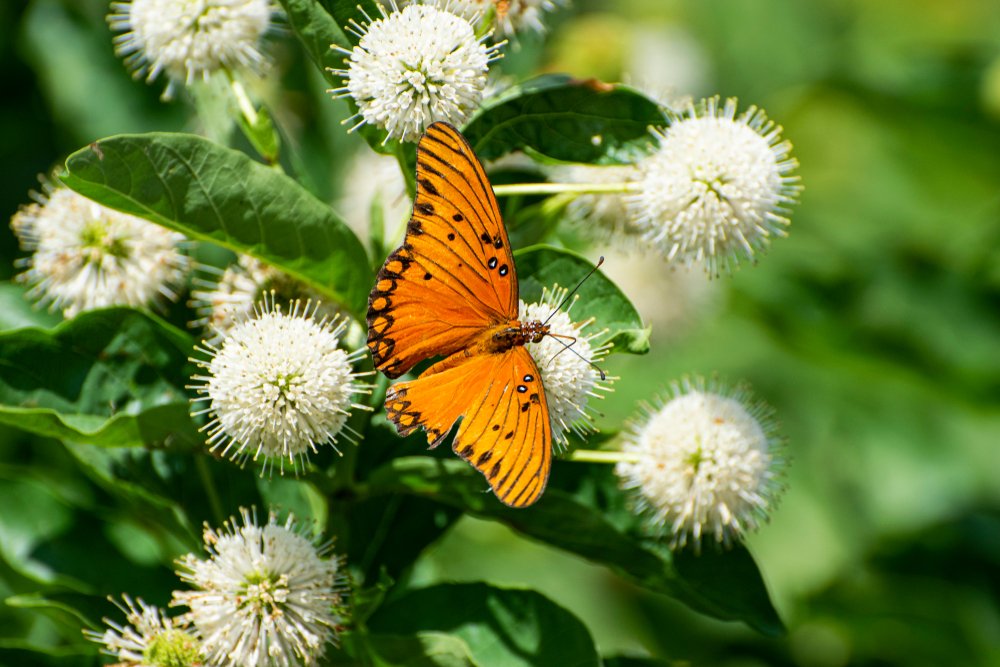
Buttonbush (Cephalanthus occidentalis) is a native shrub that can grow up to 10 feet tall. It is known for its orb-shaped clusters of tiny white flowers that bloom in mid-summer. Buttonbush prefers moist soils and can tolerate partial shade, making it a great choice for a rain garden or other wet areas in your yard.
Carolina Rose (Rosa carolina) is a native shrub that produces fragrant pink clusters of flowers that emerge in early summer. This shrub is perfect for adding a pop of color to your yard, and it is also a great choice for attracting butterflies and other pollinators.
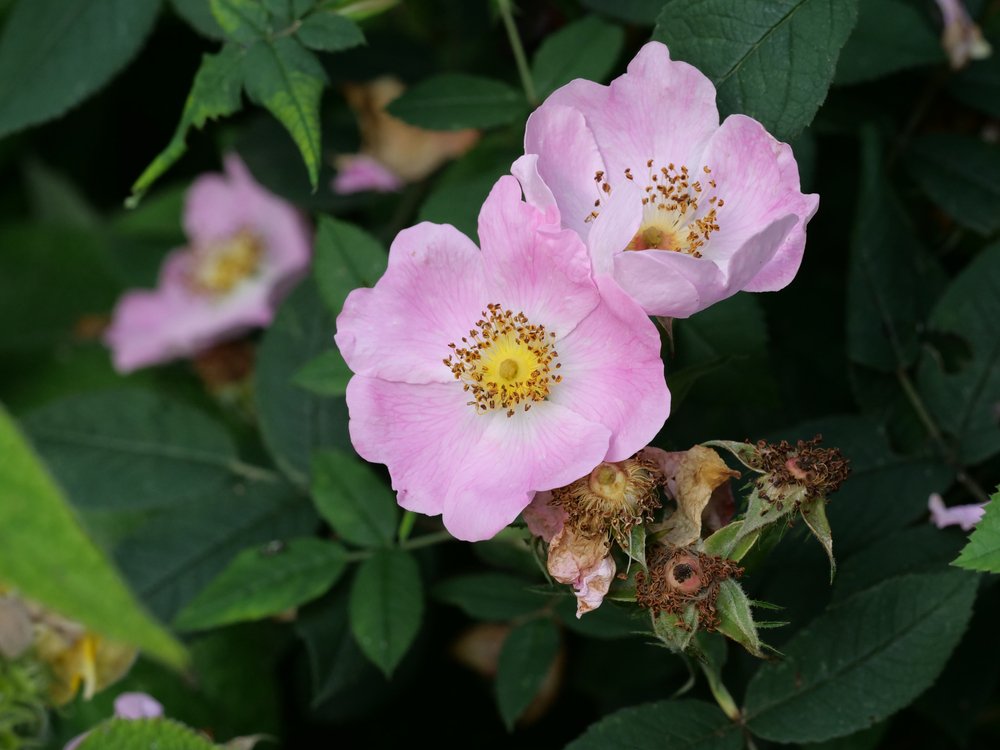
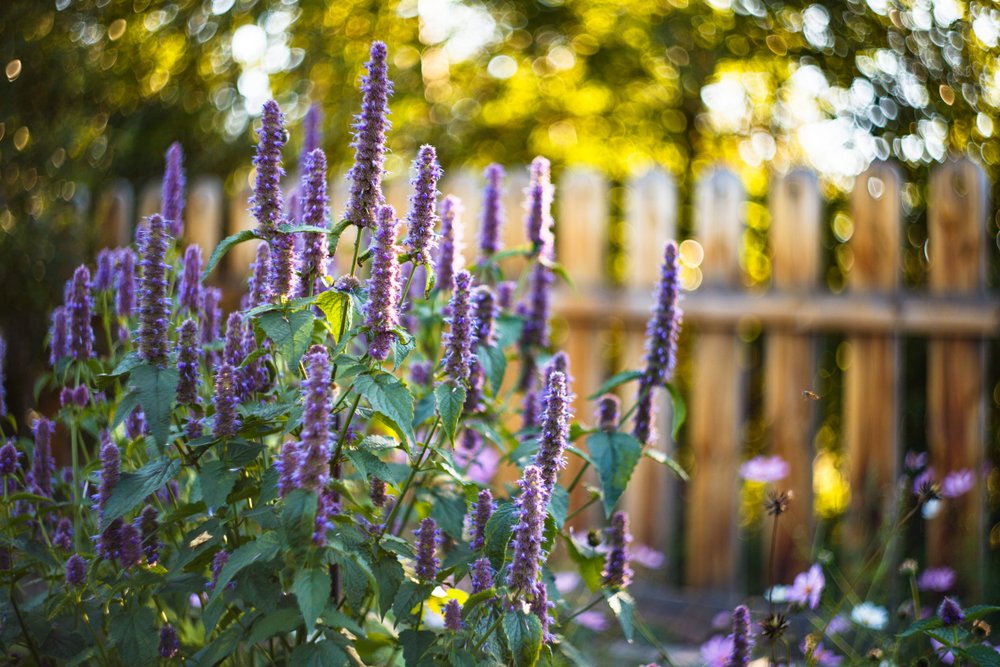
Anise Hyssop (Agastache foeniculum) is a herbaceous perennial that produces fragrant spikes of lavender blossoms. This plant can grow up to three feet tall and is perfect for adding height and interest to your garden. Anise Hyssop prefers well-drained soils and full sun, making it a great choice for a sunny spot in your yard.
Purple Love Grass (Eragrostis spectabilis) is a gorgeous ornamental grass that produces a cloud of violet blossoms. This plant is perfect for adding texture and interest to your garden, and it can also be used to stabilize soil in erosion-prone areas. Purple Love Grass prefers well-drained soils and full sun.

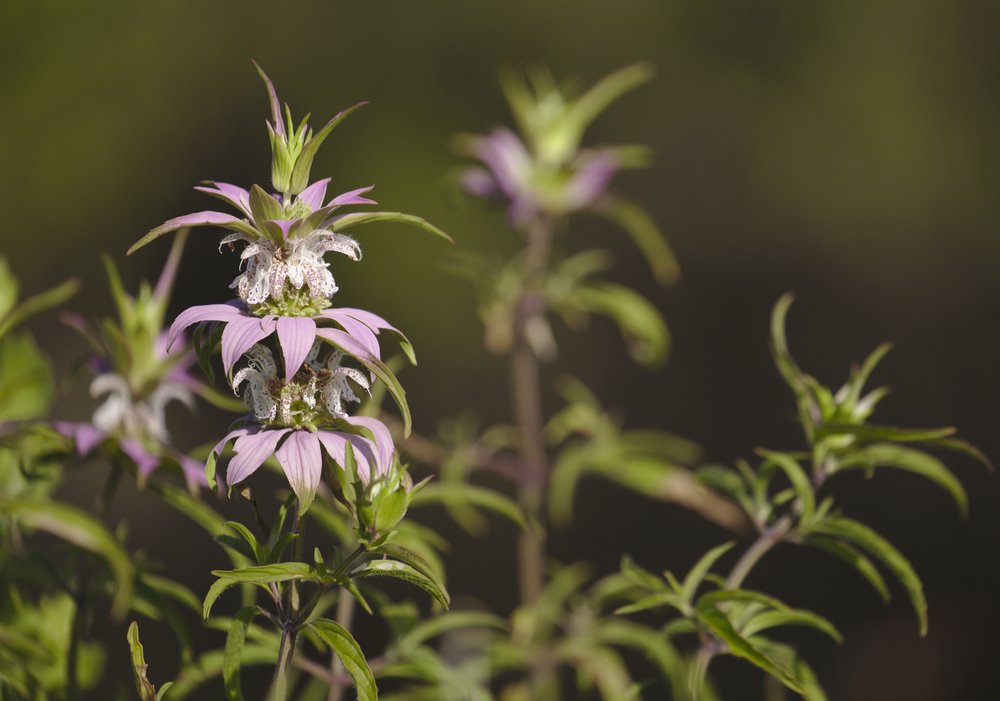
Pagoda Horsemint (Monarda punctata) is a stunning native plant that produces clusters of light purple blossoms. This plant is perfect for adding color and texture to your garden, and it also attracts bees, butterflies, and other pollinators. Pagoda Horsemint prefers well-drained soils and full sun, making it a great addition to a sunny area in your yard.
Golden Alexander (Zizia aurea) is a native perennial that produces clusters of yellow flowers. This plant is often found growing naturally in meadows and prairies and is perfect for adding a wildflower feel to your yard. Golden Alexander prefers full sun and well-drained soils.
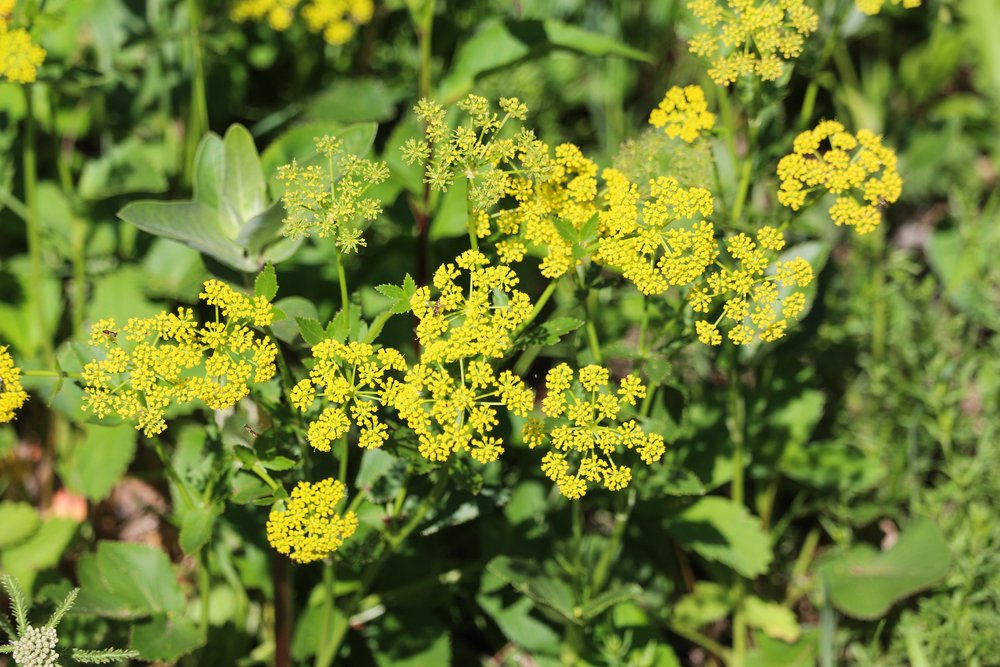
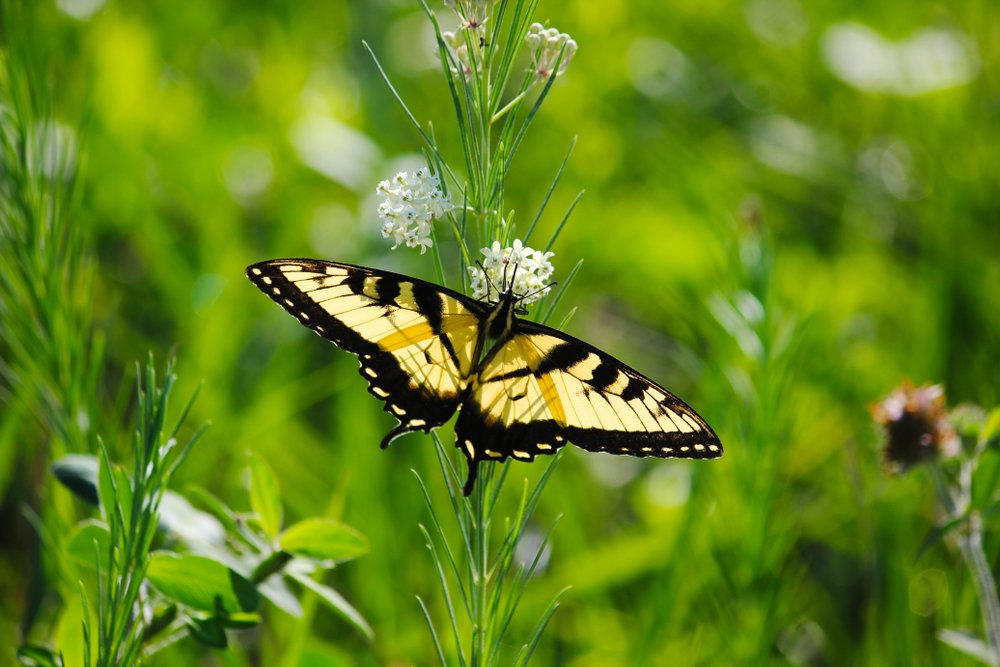
Whorled Milkweed (Asclepias verticillata) is a native perennial that produces fragrant white flowers that bloom between June and September. This plant is a favorite of monarch butterflies and other pollinators, making it a great choice for a wildlife garden. Whorled Milkweed prefers well-drained soils and full sun.
Eastern Columbine (Aquilegia canadensis) is a native perennial that produces showy red and yellow flowers. This plant is perfect for shade gardens and can add a pop of color to any shady spot in your yard. Eastern Columbine prefers moist, well-drained soils.


Side Oats Grama Grass (Bouteloua curtipendula) is a native grass that produces seeds that birds love. This plant is perfect for adding natural beauty to your garden, and it can also provide habitat and food sources for local wildlife. Side Oats Grama Grass prefers well-drained soils and full sun.
Foxglove Beard-tongue (Penstemon digitalis) is a native perennial that produces tubular-shaped bright white flowers that bloom in May and June. This plant is a favorite for attracting bees and other pollinators and is also deer-resistant. Foxglove Beard-tongue prefers full sun and well-drained soils.
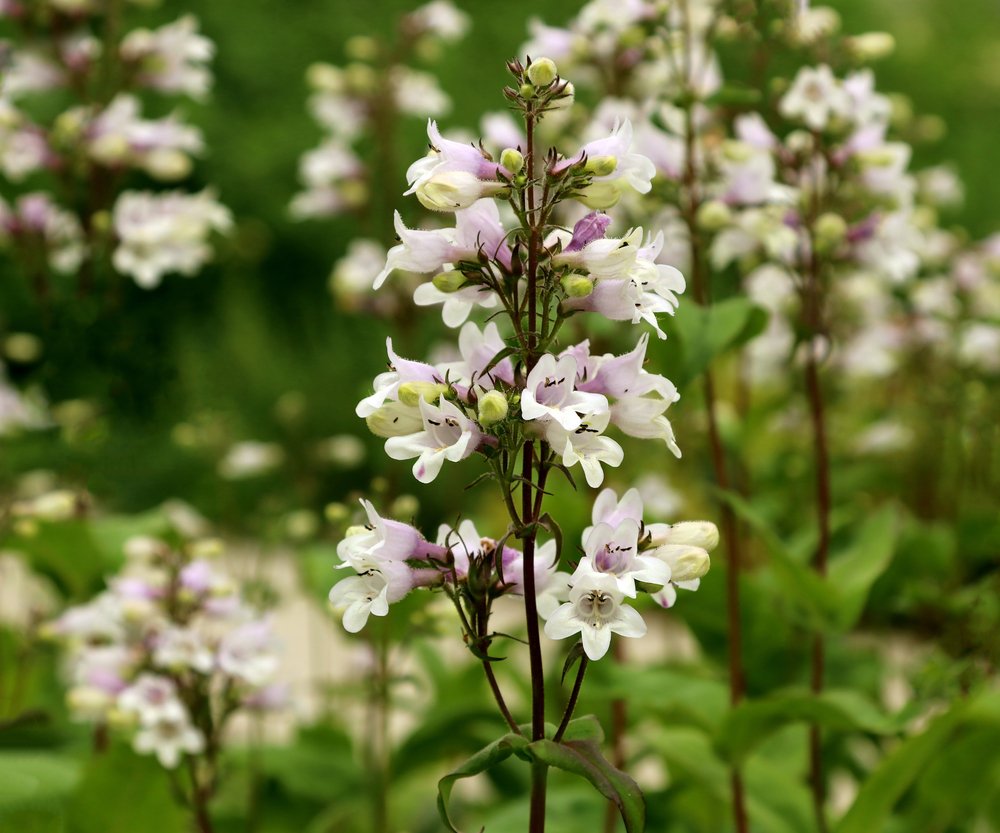
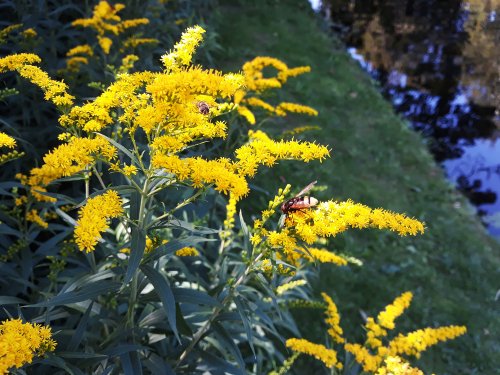
Grayleaf Goldenrod (Solidago nemoralis) is a native perennial that produces plumes of yellow flowers from summer to early fall. This plant is perfect for adding late-season interest to your yard and is also a great choice for attracting pollinators. Grayleaf Goldenrod prefers full sun and well-drained soils.
Great St. John’s Wort (Hypericum ascyron) is a beautiful native plant that produces showy, vibrant yellow flowers. This plant is perfect for adding a pop of color to your garden, and it also attracts bees and butterflies. Great St. John’s Wort prefers well-drained soils and full sun, making it a great choice for a sunny area in your yard.
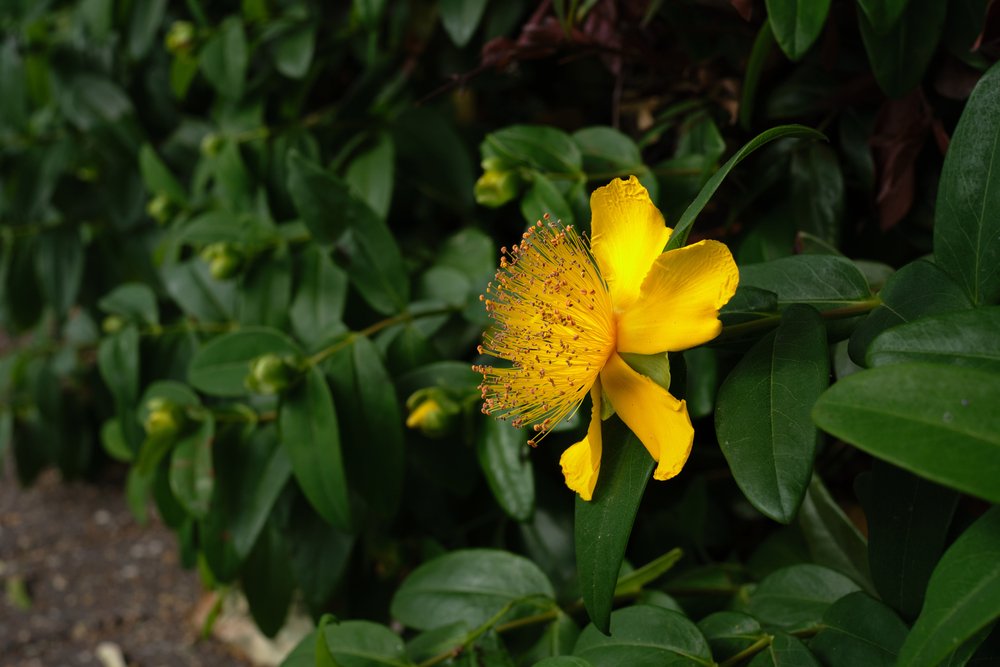

Oxeye Sunflower (Heliopsis helianthoides) is a native perennial that produces bright yellow flowers in early to mid-summer. This plant can grow up to six feet tall and is perfect for adding height and color to your garden. Oxeye Sunflower prefers full sun and well-drained soils.
Orange Butterfly Milkweed (Asclepias tuberosa) is a native perennial that produces clusters of bright orange flowers that attract butterflies. This plant is perfect for adding color and wildlife habitat to your yard. Orange Butterfly Milkweed prefers well-drained soils and full sun.
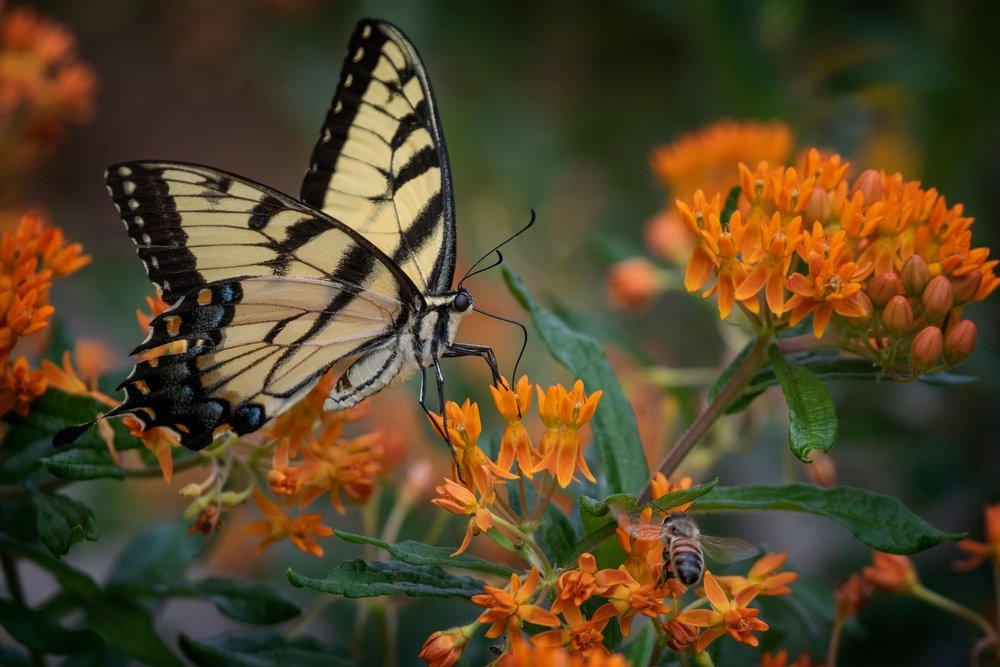
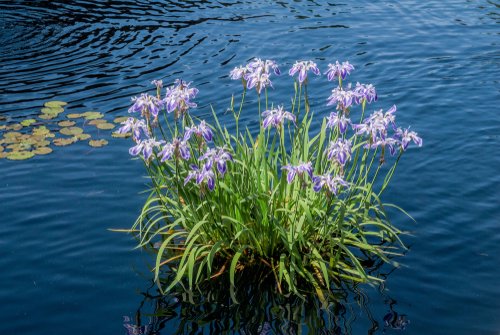
Southern Blue Flag (Iris virginica) is a native perennial that produces elegant violet and yellow petals. This plant is perfect for adding a pop of color to your yard, and it is also a great choice for a rain garden or other wet areas in your ymiard. Southern Blue Flag prefers moist soils and can tolerate partial shade. If you love it, another great Iris cultivar is Purple Flame.
Smooth Blue Aster (Symphyotrichum laeve) is a native perennial that produces lavender colored flowers that attract pollinators. This plant is perfect for adding late-season interest to your yard and is also a great choice for a wildlife garden. Smooth Blue Aster prefers full sun and well-drained soils. Another great option is Aster ‘Wood’s Pink’.
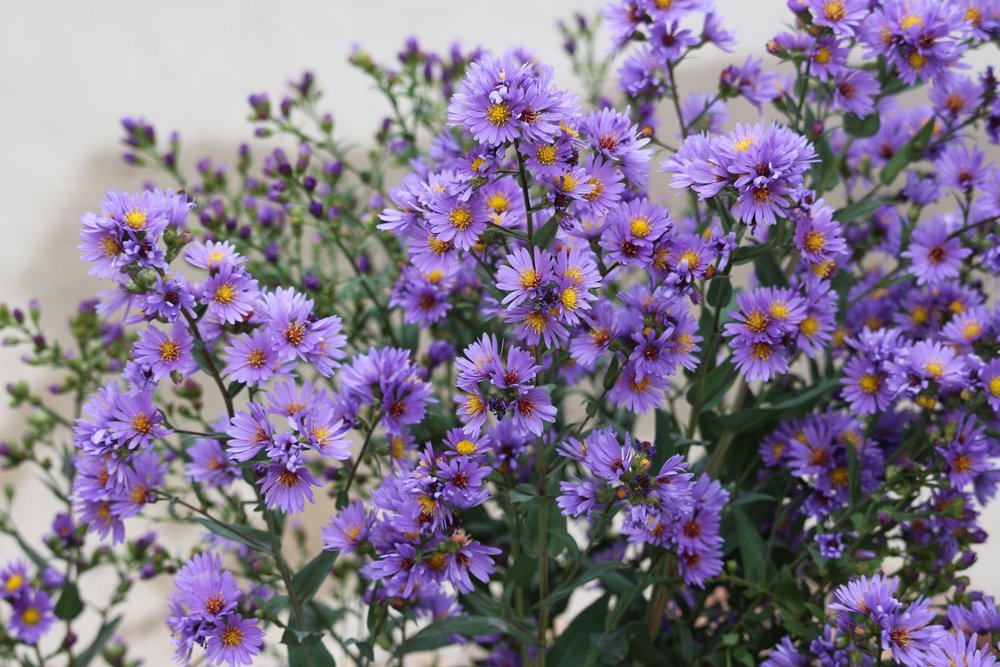
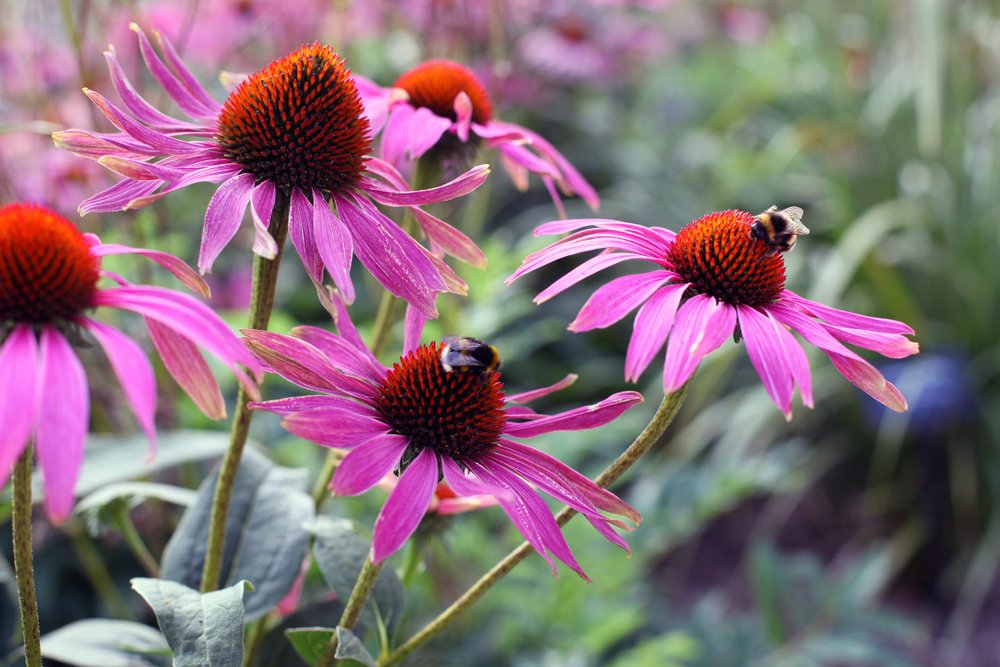
Purple Coneflower (Echinacea purpurea) is a native perennial that produces large purple flowers that attract butterflies and bees. This plant is perfect for adding color and wildlife habitat to your yard. Purple Coneflower prefers full sun and well-drained soils.
Yellow Giant Hyssop (Agastache nepetoides) is a native perennial that produces spikes of pale yellow flowers. This plant is perfect for adding height and interest to your garden and is also a great choice for attracting pollinators. Yellow Giant Hyssop prefers full sun and well-drained soils.

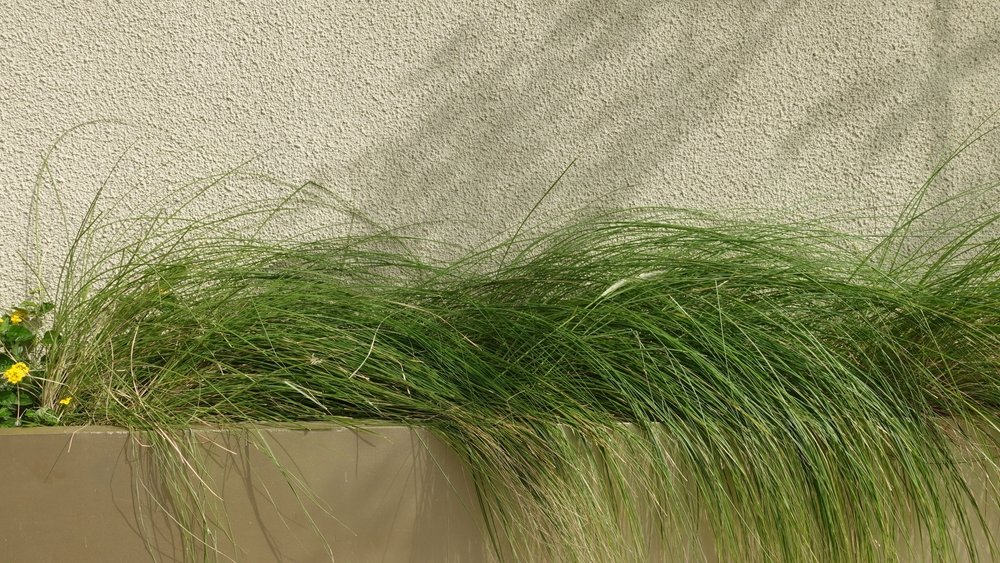
Pennsylvania Sedge (Carex pensylvanica) is a native perennial grass that has a low-lying growth habit that forms dense, spreading mats. One of the unique features is its ability to support a variety of caterpillar species. Many species of moths and butterflies rely on the leaves of this plant as a food source for their larvae. There’s also lots of great varieties of sedge grasses perfect for landscaping.
Landscaping with Michigan native plants is a fun and rewarding way to add beauty and sustainability to your yard. From fragrant Anise Hyssop to stunning Southern Blue Flag, there are so many amazing native species to choose from. So, get out there and start planting – your yard (and the environment) will thank you!
In conclusion, landscaping with Michigan native plants is a great way to create a beautiful, sustainable, and low-maintenance garden that supports the local ecosystem. By choosing native species and avoiding invasive plants, you can help protect Michigan’s natural resources and preserve its biodiversity. So, go out and explore all the amazing native plants that Michigan has to offer – you won’t be disappointed!
When shopping for Michigan native plants, one option is to visit your local nursery that specializes in native species. These nurseries will have a wide selection of plants that are perfectly suited for your local climate and soil conditions, but they might not specialize in native plants.
With native plant sales on the rise there are some great options for buying your Michigan native plants online!
Our favorite online seller is Garden For Wildlife. They specialize in native plant sales and can ship directly to your home. They also let you shop for native plants by state and also by your zip code to help you find ones that will thrive in your region!
Be sure to also check out the Learning Center page on their website for more valuable information on all things related to gardening and landscaping with native plants.
If you checked the “Digital Blueprint Only” box, then yes. If not, you will receive our actual Garden map, printed on our custom-made landscape fabric.
Whether you should start your garden with seeds or mature plants depends on several factors, including your gardening goals, experience level, budget, and patience. If you have the option, we recommend you start with mature plants for several reasons:
A digital blueprint is the layout in a .PDF format. If you are comfortable reading a scaled schematic and think you can handle the installation without the extra help, this option may be for you.
Garden Map is the design layout printed on our custom-made landscape fabric. Along with the printed fabric, you will receive installation instructions.
Sign up below to get exclusive deals, discounts, and new plant collections—delivered straight to your inbox! Plus, stay inspired with the latest gardening tips, landscaping trends, and DIY garden ideas. Start growing with us today!
A big thank you for subscribing to the PBN Design newsletter.
We're thrilled to have you join our community. Get ready for exciting updates, insightful content, and more delivered straight to your inbox.
Stay tuned!
Go backA big thank you for subscribing to the PBN Design newsletter.
We're thrilled to have you join our community. Get ready for exciting updates, insightful content, and more delivered straight to your inbox.
Stay tuned!
Go back